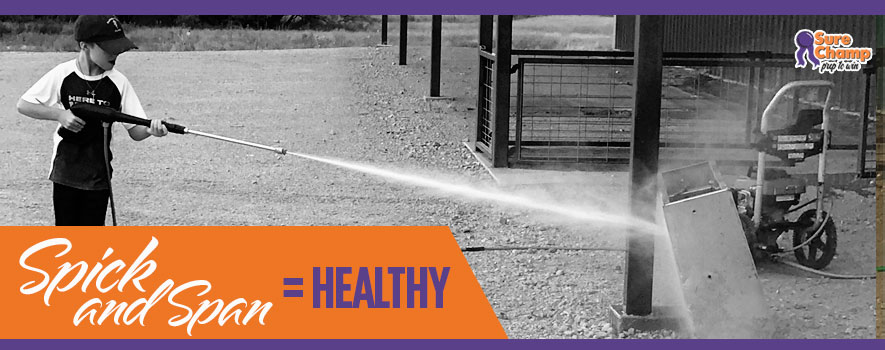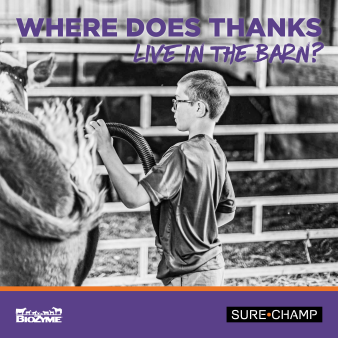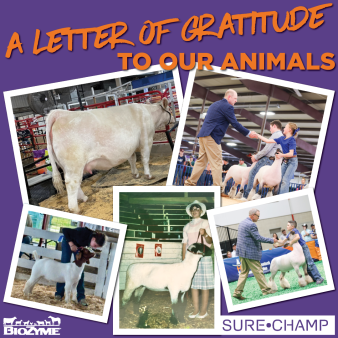
Livestock exhibitors across much of the country have just wrapped up another year with their livestock projects, while in other regions young exhibitors are just thinking about buying their next set of animals for winter shows. Before you introduce any new livestock into your barn, make sure you have properly cleaned and disinfected it to help prevent disease from the get-go.
In addition to cleaning the barn, make sure to properly clean and disinfect the supporting materials you use with your livestock on a regular basis – feed pans, water buckets, feed scoops, combs, brushes, pitchforks and even halters. It is imperative to keep your equipment and your facilities clean to prevent sickness.
Before you clean and disinfect your barn, be sure to have anything organic like hay, bedding or feed out of the area you are going to disinfect. Dispose of old bedding and start with fresh after you have cleaned the barn.
Scrape any caked-on manure or mud off panels, gates and walls before you start. Then once you do start, wash your facility from top to bottom so the dirt and grime gets from ceiling to floor and off the walls.
Rinse your walls and floors down prior to using a disinfectant. Remember, bleach can eat through some building materials, so use caution if using bleach. Pine-sol or a disinfectant from your veterinarian will work too. Once you have disinfected your facilities, be sure to have good ventilation to help dry the surfaces. Once your facilities are dry, start bedding with clean, fresh bedding to prepare for the arrival of your new show prospects.
If you give your barn a deep disinfecting job both at the beginning and end of your normal show season, you should see a significant reduction in sickness with proper regular cleaning. If you do bring a sick animal home from a show, consider disinfecting your barn again.
The key to moving forward is never to go backward. Taking the time to ensure you have a clean facility is vital to preventing sickness in your livestock show projects. Combine this with a proper nutrition program and the likelihood of having sick animals decreases significantly.

